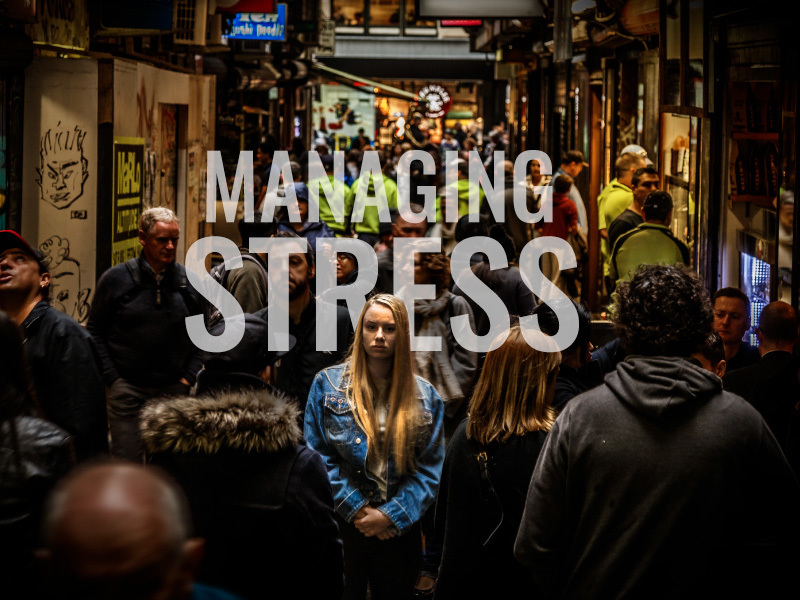
Stress is a normal mental and physical reaction to the demands of life. How we manage it, though, plays a huge role in our overall health and wellbeing. While there’s no one-size-fits-all approach to stress management, learning how to cope with stress should be a priority in your busy life.
Most people associate stressors as negative events, but even positive events are common causes of stress (such as planning a wedding or having a baby). Stress can also be generated internally when you engage in negative self-talk or place unrealistic expectations on yourself. With so many different causes of stress, no one is immune to it, but everyone can do something to help manage stress and keep it from becoming a serious health problem. Here are a few ideas.
- Think and speak positively. Keep your mind free from negative thoughts to improve your emotional wellbeing. Keep a positive mental journal to help you maintain optimism and positivity.
- Exercise and eat right. Lack of exercise and eating foods high in processed sugar or refined carbohydrates can worsen the effect of stress. Clean up your diet and get moving every day to improve your mood.
- Get rest. Adequate sleep is essential to good health. Adults need 7-8 hours of sleep per night, so if you’re not receiving that, you will not be able to perform your best at work or school and you’ll also fall short in managing stress effectively.
- Prioritize and organize. Make lists and try to set a regular routine. Procrastinating on a to-do list will only add to your stress. Simplify some areas in your life by saying “no” to things that do not need to take priority.
- Schedule quality time for yourself. Carve out “me” time every once in awhile. Doing something for yourself regularly is an important part of stress management and self-care. Find a hobby, get a massage, connect with a friend – do whatever feels like a personal treat- but not through unhealthy food or activities.
- Consider regular chiropractic adjustments. Prolonged or excessive stress can take a physical toll on your body. Neck pain, headaches, and lower back pain can all occur from chronic stress. Regular adjustments keep you healthy and are an effective way to help manage stress.




